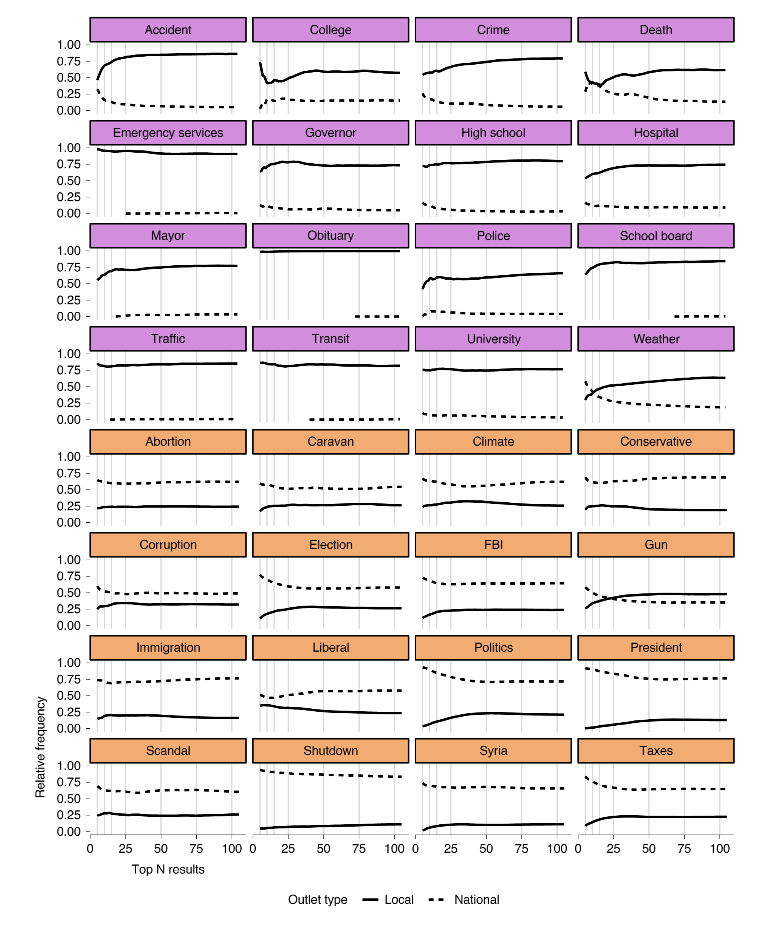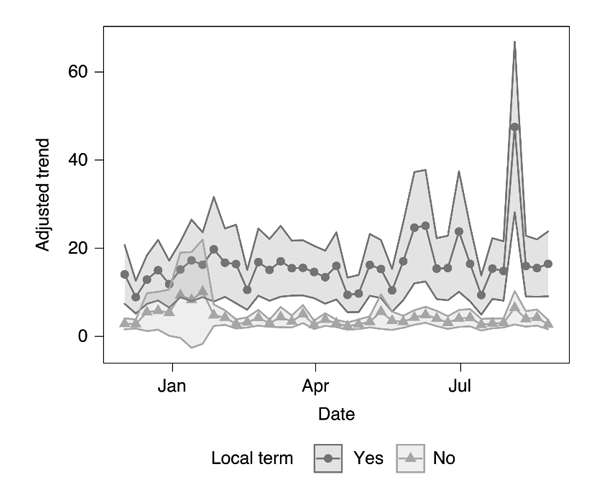
Google the company conquers the web, the mobile and beyond. The 'bubble' Google created for people to living in, is tailored for personalization and monetization.
That is because Google is after all, an internet company that thrives by having a massive audience and users. Google is the tech giant of the web, and among others, conducts its business by providing news contents using its Google News aggregator service.
Google News gathers the posts on its feed from tens of thousands of sources and publishers, in which it will then organize for viewers to read on the web or mobile.
While Google wants Google News users to get the information it thinks is best for them from their given queries or interest, a 2020 study in the journal Nature Human Behaviour, suggests that Google News tends to prioritize national news outlets when individuals search for keywords, unless the keywords specifically relate to topics of local interest.
As a result of this, the Google News algorithm may divert web traffic away from local news outlets, depriving them of advertiser money.
This in turn thrives and benefits larger media companies.
In an article on The Washington Post, researchers from the University of Pennsylvania and the National University of Singapore described how they tried to figure out whether Google might be preventing people from hunting down for local news on the company’s search engine.
After conducting around 100,000 searches, the team reported that indeed, Google is seemingly defaulted to squashing local and smaller news outlets by favoring larger and more prominent national publishers.
As described on the team's finding, the team ran their Google News audit by compiling the search results that cropped up after toggling their browser’s location settings to put their locale in a specific county.
The team then conducted the same search queries "in over 3,000 US counties, which were collected using automatic scripts running on an internet browser’s private-browsing mode. "
It was through this manner that the team scrapped 12,290,428 research results.
Filtering the results, the team classified the 8,740 news sources as either local, regional, national or international outlets."
At the surface, the results were clear: searches for locally-oriented queries returned more local outlets, while broadly-oriented queries returned more national outlets.
However, the researchers found that only few people look beyond the first page of Google Search. And with the case of Google News, the aggregator puts far more national outlets at the top of the search results - even for local queries.
"As an example, we examined the proportion of local and national search results for 'early voting' that Google News returned Oct. 26, before the 2020 election. Certainly at least some people searching for that term hoped to get information about local or state early voting information."
"However, only 20 percent of the top 10 returned searches were from local outlets. If readers kept scrolling past the 20th result, they would eventually find local outlets. But national outlets were the most common sources returned in the top results — and therefore more likely to be clicked. In the top two results, national outlets’ stories appeared 56 percent of the time. Google News’s top pick was a national outlet almost 74 percent of the time."

At first, the researchers thought that the number of local news outlets available in a county would affect how many local news sources showed up in the search results. But after further research, the team found that it made no difference.
"You have the same chance of seeing a local outlet in your Google News search results if you live somewhere with no local news outlets, as is true in many rural communities, or somewhere overflowing with local news, as in major metropolitan areas," suggesting that well-funded national outlets will get the most attention.
Google cannot be fully blamed here.
Larger media companies and news agencies are less likely to provide news and information without careful consideration and research, and will required content to pass several editorial processes before the public can see them. These processes don't necessarily apply to smaller publishers.
Google only wants the best of information delivered to users. And in the 'COVID-19' coronavirus-ridden world where people live in lockdowns and rely more on the internet than ever, information should not mislead people.
Google doesn't want contents with misinformation, disinformation and malinformation to plague its Google News feed. And again, since the coronavirus is forcing many people to work remotely, Google the company doesn't have the capacity it had before the crisis, in terms of dealing with its human filtering processes.
However, the blame can partially lies on Google, especially because the company has systematically swallowed a larger and larger chunk of the digital ad market.
With many of the world's internet traffic of people seeking for news pass through Google, Google has the capacity to divert the advertising dollars to whoever it wishes.
And in this case, Google News is diverting web traffic away from smaller outlets.

Google is the largest search engine in the world.
For its part, as mentioned, the company conquers much of the web's traffic. With its advertising programs, Google is benefiting publishers it sees fit.
But the thing about Google is that, Google is like buying itself to be inside the digital news industry, powered by its influential sources, in order to appeal advertisers that will pay more for impressions and clicks. At the same time, Google is also buying itself to the industry, by using own spin on payment programs meant to give publishers back the funding that the company has been earning off their backs.
In other words, Google is creating a bubble for its users so they see what Google wants them to see, while at the same time, creating a bubble that is only occupied by Google and its fellow publishers it likes the most.
By surfacing more contents from bigger and more respectable media sources with larger readership, Google is like considering smaller publishers as more unworthy for visibility.
"Google News does not seem to deviate from its general pattern of favoring large national outlets, even on topics for which communities may be looking for local news. This suggests the search algorithm does not consider context or topics; nor does it make any effort to help local news outlets place higher in search results," the post added.
Then again, Google competes for attention, and target more users as competitors like Facebook is also getting their feet wet into the news aggregation business.
As the crisis continues, and also with less capacity to deal with issues and feedback, Google is playing it safe.
Given by the huge number of people who rely on Google Search and Google News for information, Google's approach in surfacing certain sources instead of the others could still influence people's understandings and general knowledge.
So here, Google wins some by allowing select publishers to win with it, but at the same time, Google also loses because it failed to localize during the time that matters it the most.